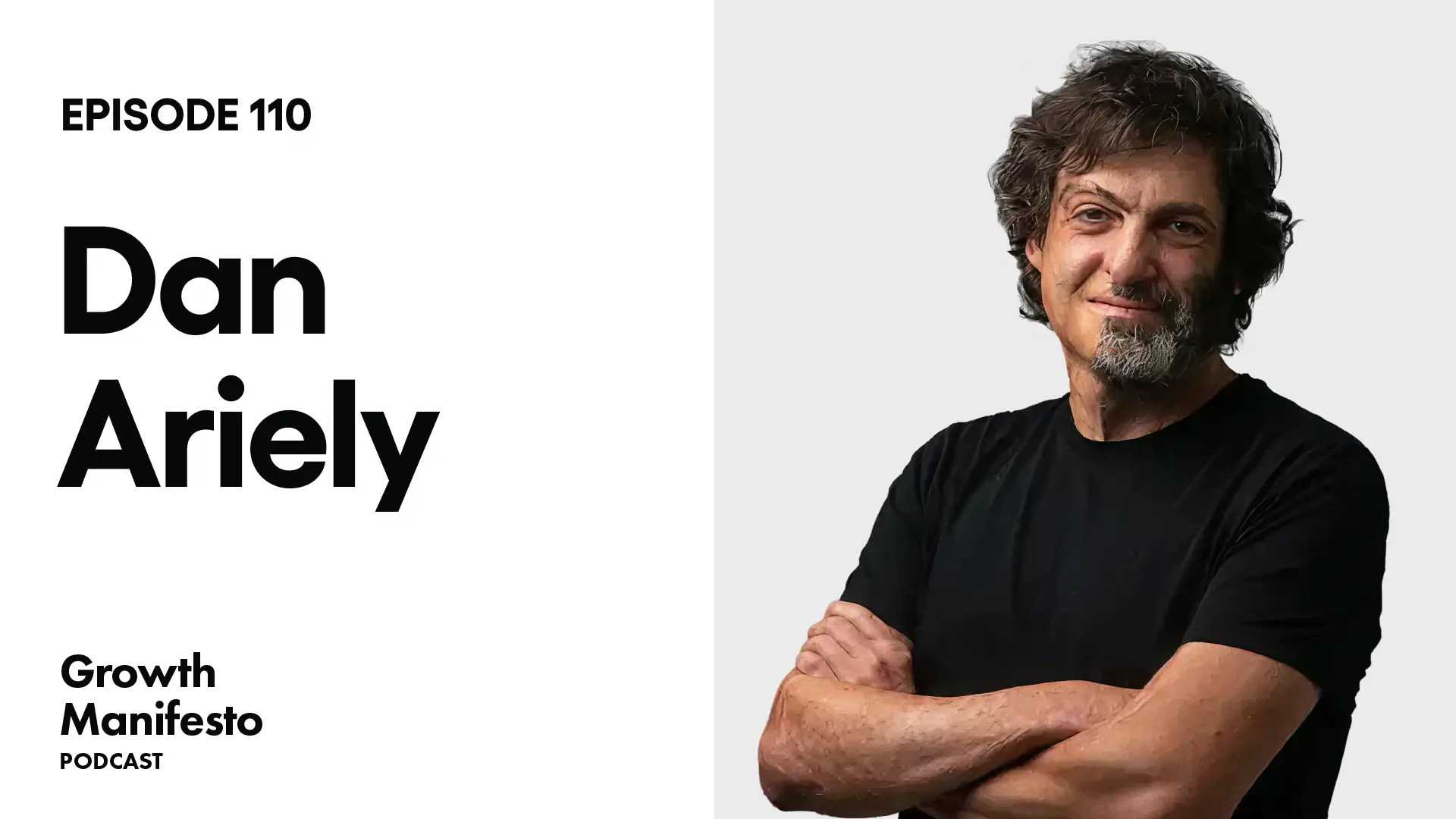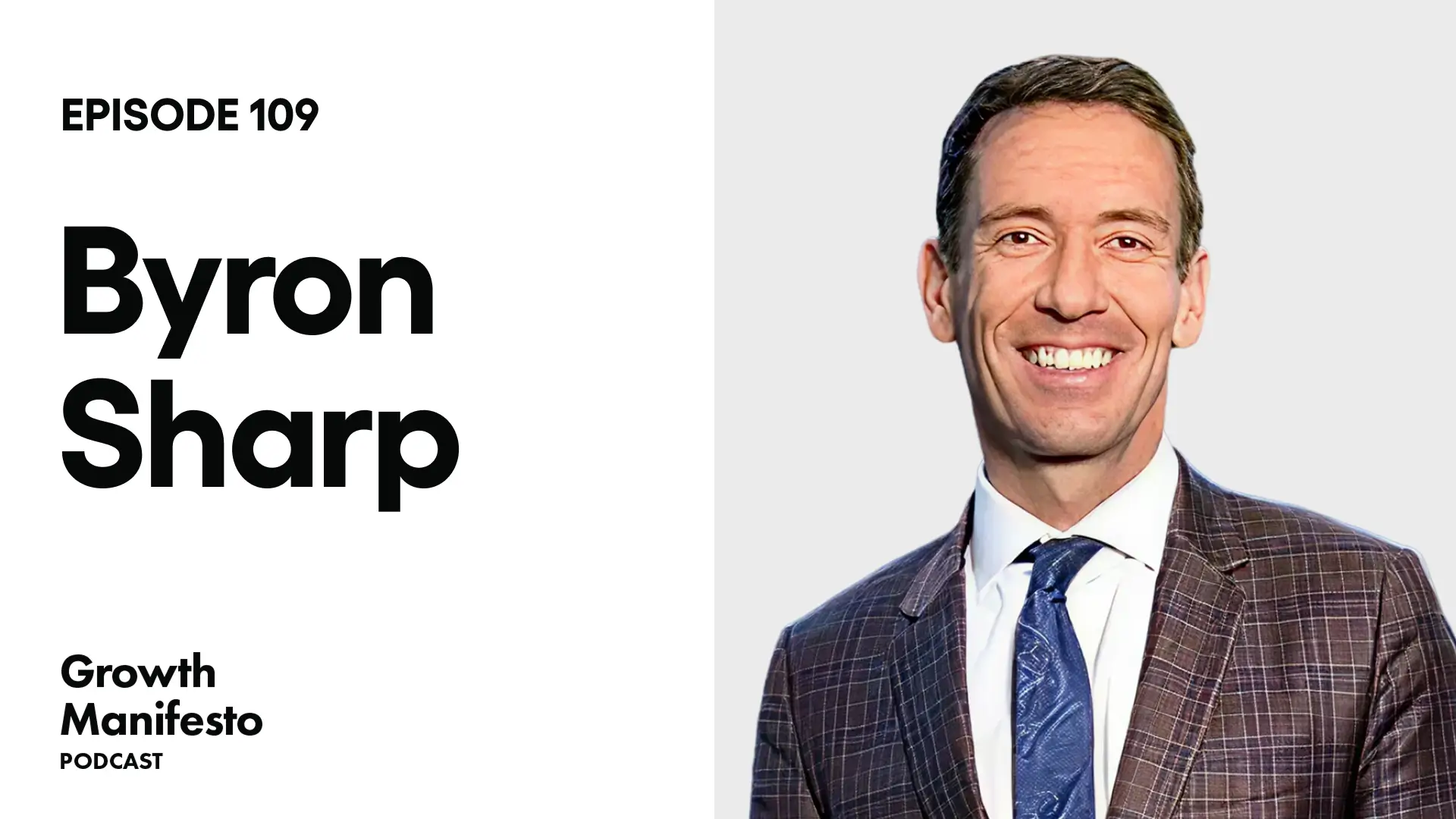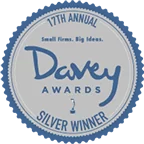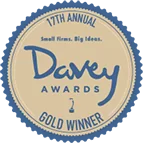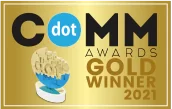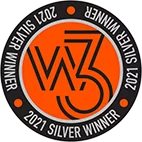How Heaps Normal built a $57M non-alcoholic beer brand in 3 years
In this episode we talk with Peter Brennan – Co-Founder and Head of Brand at Heaps Normal – about how they launched their non-alcoholic beer brand in 2020 and in less than 3 years grew to a $57M business.
LINKS
—
You’re listening to The Growth Manifesto Podcast, a Zoom video series brought to you by Webprofits – a digital growth consultancy that helps global and national businesses attract, acquire, and retain customers through digital marketing.
Hosted by Alex Cleanthous.
- YouTube: https://www.youtube.com/c/GrowthManifestoPodcast
- Instagram: https://www.instagram.com/webprofits/
- LinkedIn: https://www.linkedin.com/company/web-profits/
- Facebook: https://www.facebook.com/Webprofits/
- Twitter: https://twitter.com/webprofits
- Agency: https://www.webprofits.io
TRANSCRIPT
Peter Brennan:
But like I said, I think that ignorance plays a big part. If you don’t know what’s around the corner, it’s easier to just carry on going. As opposed to expecting the worst, and not doing what you could really push forward and do.
Alex Cleanthous:
This is Alex Cleanthous. And today we’re talking with Peter Brennan, co-founder and head of brand at Heaps Normal, about how they’re launched their non-alcoholic beer brand in 2020. And in less than three years, have grown it to a $60 million business. Which is a massive feat.
And for those of you who forgot, 2020 was the pandemic. So we’re going to jump into that as well, because this is a huge success story from probably the hardest time I’ve experienced in my life. And I’m sure it’s a consistent thing across all the business landscapes. So this is going to be a really interesting story, because you started in the pandemic. So first of all, hello and welcome Peter.
Peter Brennan:
Hi, Alex. Thanks for having me.
Alex Cleanthous:
It’s fantastic to speak to you. And I’ve heard about Heaps Normal because I thought that’s not very normal, to have an non-alcoholic beer brand. And so, let’s start with what inspired you to start the brand. And how did you identify the opportunity? Especially in the non-alcoholic beer market. Because, it’s not a standard pathway to go into.
Peter Brennan:
Yeah. It’s not. Thanks for the warm introduction, Alex. It’s really cool to be on your podcast. So thank you for having me, mate. I appreciate you reaching out. I think sometimes you go through experiences, and you have these thoughts. And you sometimes scratch an own itch. And for me, that’s what Heaps Normal was. And it’s turned into this thing. And what that means to me is, I grew up with an alcoholic father. I lost him to suicide when I was 11 years old. I talk about that very openly. It’s not a sob story, it’s just my story. And it is what it is. And I’m at peace with that on a very personal level.
But for me, becoming a father… I’ve got three young kids now. They’re all under seven. And going through that journey myself, it made me look back and realise I had a very unhealthy relationship with alcohol.
And I don’t know if that was nurturing, through what I saw growing up as a kid. And I spend a lot of time in London, and you drink beers for breakfast and meetings in London when you work there sometimes. I wanted to really change my relationship with alcohol, because I wasn’t happy with it. I’m a branding guy by trade. I run a branding studio. And went to work first on the brand, to see what that would look like. And it was called Quiet Beer for a long time. And went and knocked on the doors of some friends of friends who owned some breweries around town. And was politely laughed out the room. It wasn’t the right time, it wasn’t right for the brand. But I just couldn’t let go of this idea. And I travelled a bit for work. I’ve been to Japan, and I’ve been to the states quite a bit. And realised a lot of the younger people weren’t drinking.
It wasn’t that big drinking culture that I was used to growing up. A lot of people were experimenting, and micro dosing in cannabis and things like that. And drinking kombucha when they went out at night. The kids were so… The kids. I sound like such an old man. But it was a thing. And it just stuck with me. And life went back to normal after those trips. And it was just this thing that was sitting at the back of my mind. And after a lot of people saying no, there was… The first person that listened to me and heard me out was a guy named Andy Miller. And he’s now the CEO of Heaps Normal, and my co-founder. And he was the first person who heard me out and went, yep. I can understand what you want to do, and I can see the vision. And I see this as a challenge as well.
And it’s something… He had his own perception of what that meant to him. And he pulled in Benny, who’s obviously an established brewer. Worked at some incredible beer brands around Sydney for the best part of a decade. And then I pulled in Jordy Smith, who’s a childhood friend of mine. And a professional surfer out of South Africa. And we started the business. And here we are, two and a half years later. And it’s going well. People are resonating with what we’re doing. And we’ve got a great following of fans that believe in us as a brand. And we’re trying to do the right thing by how we run the business. And we’re learning every day, but we’re having a lot of fun. And it feels like it’s a good thing.
Alex Cleanthous:
So what was the state of the market at the time? Because 2020, it’s the beginning of the pandemic. I think the world was upside down at that point. And the four of you I’m assuming, had to have been speaking about it for some time. And then you decided to launch. And so, how competitive in terms of a space was it? Just to start with. And why 2020 after everything started to lock down, was that the time?
Peter Brennan:
Yeah. Some great questions in there. Just to unpack that. I think in terms of timing, it was one of those things where we’d been working on it for the best part of probably 12 months if not more, before we’d actually incorporated and launched anything of value. And I think when you get to a point where you see a roadblock like that, you have a choice whether to stop doing what you’re doing, or plough forward. And I think there was a bit of ignorance in there for sure, from our side. And naivety as well, definitely. As proper first time founders.
But we went forward. And we had some really good timing things that happened within that covid space in the first few months. We were destined to go into kegs, first of all. That was our first plan. If we had managed to pull that off, all the bars and restaurants closed down. Everyone went into lockdown, it would’ve been a disaster.
So we went into cans. And that was purely from a technical challenge of getting into kegs. It felt easier to get into cans. And that really saved us. And then we got into Startmate, which is an accelerator programme run by Black Bird Ventures. One of the most respected VC firms here in Australia. And that just opened so many doors for us. Yeah. Like I said, I think just head down. And trying to focus on what you can control, and not really being too worried about what you can’t control is something I definitely pulled from. I think the rest of us did as well. But like I said, I think that ignorance plays a big part. If you don’t know what’s around the corner, it’s easier to just carry on going. As opposed to expecting the worst, and not doing what you could really push forward and do.
Alex Cleanthous:
Yeah. For sure. And I think every entrepreneur that’s a seasoned entrepreneur, if you ask them at the time that they started, they thought… They’re completely optimistic. Everything’s going to be fine. I’m sure we’ll figure it out. And I think you need that ignorant willpower and sheer optimism to really step into the path ahead. And so in terms of when you raised the funds, so were they raised in 2020? Or before 2020?
Peter Brennan:
Yeah. It was 2020, we joined Startmate. And we raised $1.3 million off the back of that. And that allowed us to do our first production run. We got a lot of press off the back of that as well, which obviously helps the brand at any stage. And we started getting noticed. And it started getting us a little bit of traction at the door. We got featured on the likes of Broadsheet, and some really influential publications that really helps. Yeah. Lots of good things happened pretty early on.
Alex Cleanthous:
And so, you raise the funds. You started this thing at the beginning of the pandemic. You said, “All right. Cool. We’re home anyway. Let’s just spend 17, 18 hours a day trying to launch this thing.” Maybe 20 hours a day. And you got some initial press. When was the initial spurt of growth? Was it immediately after the press came out? Or was it time later?
Peter Brennan:
Yeah. I think there’s never really been one certain jump in growth. It’s been a very gradual thing for us. And I think… Just to give you some context, I’ll-
Alex Cleanthous:
From zero to 60 million in three years is pretty fast, in terms of valuation. So I like the perspective of slow growth. But it’s just more of a consistent growth. It was just being a consistent growth. Yes.
Peter Brennan:
Yeah. For sure. And I think, look. To try and answer that question, I think there was a lot of things that went right, like I alluded to earlier. The timing was one thing. I think Covid really worked in our favour. The first lockdown, people went to Dan Murphy’s and stock up. And stayed at home, and drank through it. But I think the second lockdown people went, we can’t do that again. And we were just poised to be there. And by that point, we were getting into a bit more venues. And getting a bit more noticed, in terms of being in bottle shops and things like that.
And on a lot of e-commerce websites as well, that were really helpful to our growth throughout the pandemic. I think there’s also the tendency to want to grow too fast, and you can really fall over quite quickly in doing that. To give you an example of that, we were told pretty early on if we wanted to get into the majors, we’d have to knock on doors for a few months. And you need to have years of trading on the belt. And they’d hammer you down on price. And we heard all these horror stories. But it wasn’t like that at all. Dealing with those venues was great. They understood our growth. They approached us to re-arrange. And then we politely said no at the beginning, because it was too early for us.
And we would’ve fallen over I think, if we’d just gone from being in a few hundred independents, to these big chains in grocery stores around the country. Because, growing for the wrong reasons is not the right thing to do. And we want to do that properly. We’re genuinely trying to change drinking culture. And that’s something that is really meaningful to me on a very personal level. And that’s my mission as a business. And to do that, you need to do that the right way. And that’s not running after dollars, and trying to grow as quickly as you can.
Alex Cleanthous:
Thank you for that. So it’s been about three years now, roughly. And so at that time, how many other competitors were there at the time?
Peter Brennan:
Yeah. There’s a few. There’s… Again, I think we… Just before we launched, Carlton launched Carlton Zero. And Heineken Zero was out around the same time, shortly after that. In terms of the indie space, there’s some great non-alc beers out there. And we weren’t the first by any means. I think we got a lot of cut through, because the brand was quite different. The product is very different as well. The early days of how we operated is, we had these blank cans. And we would hand them out to bars and restaurants of friends and family, and people that we knew. And they were drinking and say well, this is a great craft beer. And started naming the hot profiles, and all the flavours. And then we would say it’s non-alcoholic, and jaws would hit the floor. And they couldn’t quite believe it. Yeah. It’s been a journey. There’s a lot that we can unpack.
Alex Cleanthous:
And so, you are the head of brand. What was your strategy for differentiating the brand?
Peter Brennan:
For sure. Great question. I love this one.
Alex Cleanthous:
This is your jam.
Peter Brennan:
Oh, this is me Alex.
Alex Cleanthous:
I’ve got a bunch of brand questions for you now. This is great. I’m excited.
And I’m not a brand specialist either, so this is going to be good. I’m going to learn here.
Peter Brennan:
Awesome.
Alex Cleanthous:
Great.
Peter Brennan:
I hope you do. And if you don’t, I’m doing something wrong for sure. Yeah. Look, I think being in a category that was super, super early, and being a brand that was launching in that category was still very much, and still very much is in its infancy stages.
And this wasn’t just me, this was Andy and Benny and Jordy and I together, working on this brand. And building this. And we all wanted this thing to be really different. We really needed it to stand for something, and mean something. We wanted it to be… On an emotional level, we wanted to engage people. We wanted people to really buy into our vision and our mission. And what we’re trying to do with it. And I think there’s an element of nostalgia to it as well, with the colour palettes we’ve used. And the style of illustrations. And the topography choices.
And for me, the strategy was to be able to stand around a fire at a barbecue or at the bar, and hold one of these in your hands. And not feel alienated. And not have people ask you why you’re not drinking, if something’s wrong with you. Because, that was me forever. I would either go out and have a drink, and not be in control. Or I would have a Coca-Cola, and I’d pretend I have an ear infection. And I’m on my antibiotics, and I can’t drink. And it gets a bit weird after a while. And people start questioning, is something wrong with you? And that sort of thing.
For me that was the driving force. It’s like how can we make this thing so normal, hence the name, that you don’t feel weird standing around a gathering of people that you care about, and you might value their opinion when they ask you what you’re drinking? And that’s evolved in our brand massively. And we now, create your own normal. People have taken that tagline of ours, and they’ve made it their own. And I think our brand is a vehicle for people to really just be themselves. And be okay with that weirdness that other people might think is strange, and not normal. Because, your normal might be completely different.
Alex Cleanthous:
I saw your success over the years. And I thought, it’s a super interesting name. Heaps Normal. It’s exactly how an Australian would speak.
And so, how did you actually create the name Heaps Normal?
Peter Brennan:
Oh, man. We went-
Alex Cleanthous:
Because, that would’ve been a really risky one I would say.
Peter Brennan:
Yeah. Massively.
Alex Cleanthous:
It’s hard to get that past the shareholders, the stakeholders, and so on sometimes.
Peter Brennan:
Oh, yeah. Yeah. I mean luckily by the time we got to talking to people like that, we had all that stuff locked in. But in the early days, I think there was about nine different brand iterations we went through. It was first called Quiet Beer. We actually registered the business as that name. That’s why the first product was called the Quiet XPA. The extra parallel. Because, it was a bit of an ode to our first business name.
Yeah. I think it’s one of those things where with any creative endeavour for me, you look at it for the first time, and you have an opinion. And you sleep on it. And you have a different opinion the next morning, or a month later. And I think sometimes there’s a real magic in allowing that time to really stew out a little bit. And really look at how a brand feels as you progress your relationship with the colour palette, and the topography choice. And the imagery, and things like that.
So we had that luxury of time where we’d built the brand early. Obviously, me being a brand guy. So while we were still working on the product itself, and the business, and the backend side of things, there was opportunity to really push the brand. And it took us a long time to get it right. Andy was actually the first one who came up with the name one day. I remember him, Benny and I just had a random afternoon meeting. And we didn’t land on it. But then as soon as we put the phone down, he messaged everyone going hey, what about Heaps Normal? And straight away we were just like, that’s it
Alex Cleanthous:
When you know, you know.
Peter Brennan:
Exactly. Yeah. It was a journey, but I feel like we got there in the end.
Alex Cleanthous:
And so, who was the initial target market? Because obviously, you can’t go after everyone. And there’s going to be a certain segment that would initially be interested.
And so, how did you actually identify that first target market segment?
Peter Brennan:
It’s interesting you ask that. Because when I had this thing in my head, the version of it for me was oh, obviously people who have issues with alcohol. And meeting Andy and Benny, and getting to know them throughout this journey. And them being both from a very cool craft beer background, there’s insights there that are just so gold.
Like people in the hospitality industry for example, who drink every night because they’re just surrounded by it. By the time we got to launch, we realised who we wanted to target. And that was people who really enjoyed beer, but wanted to cut down their alcohol consumption. And that could be because you’re driving for the night, and you’re the designated driver. It could be because you’re taking a period of abstinence, because you are training for a marathon. Or whatever it might be.
Within that, we delved down a little bit deeper into going after artists and athletes. And really using those as our two core pillars to go after. Instead of going after demographics and all that sort of stuff, which is typically where you would go. Just really focusing on those two key pillars. And just allowing people to create their own normal through what we are doing.
Alex Cleanthous:
I know how that social pressure is if you for one night, just prefer to have something that has no alcohol in it. And the looks at first, oh yeah. Cool. I get it. But after they get drunkest, it’s come on. Get a drink in you. And if you’ve got one there, I can see how that would just reduce the pressure a bit.
So what was the initial messaging for the brand? Because obviously, it’s going after the artists and the sports people. But now you have to put out some kind of a core brand message. And so, how did you decide what was the correct approach there? So was there some customer research? Some surveys? Or was it anything like that? Or was it just more internal discussions? Or because you have so much expertise, you just had a sixth sense about it? Saying, it’s probably going to be this.
Peter Brennan:
Yeah. Look, I think it was a mix of all of those things. I think just playing… With all of us playing in the spaces that we play, and me in Brand and Andy in the marketing space of brands like that, and Benny from a technical background, I think it was definitely the sum of all parts that came together for us.
What was the rest of the question, Alex? Sorry.
Alex Cleanthous:
Just wondered just how you were able to create the first of the core brand messages. To say, this is alcohol for this person. Or for this segment, or whatever. Instead of alcoholics who just don’t want to have any more alcohol. You know what I mean?
How did you identify that as a starting point? Because, I’m assuming that would be pretty important to launching.
Peter Brennan:
Yeah. Absolutely. We had intel through our network. Obviously through our investors, by the time we raised some funding. And obviously just our backgrounds, like I said as well earlier on. For me, I think having the messaging, people can make their own relationship with. That’s the magic in it for me, from a branding perspective.
So our tagline being, too good to be wasted. We put that out there on a can. People latch onto that, and make their own assumption with that. They have their own relationship with what that means to them. And that for me, has been the magic of how this brand has taken off. Because people resonating with it on an emotional level, they understand their view of what that means to them. And that’s where I feel like, we’ve really got some cut through.
Alex Cleanthous:
Yeah. There’s multiple messages in that one, hey?
Peter Brennan:
There is.
Alex Cleanthous:
Too good to be wasted. I’m too good, so I don’t want to be wasted. But also the drink’s too good, so don’t waste the drink. I’m getting it.
Peter Brennan:
The double play catches you after a while. Yeah. It’s pretty cool.
Alex Cleanthous:
And so when did things really start to scale? Because obviously, it started in the second lockdown. I mean 2020, that was at the beginning still. That was the first year.
It’s obviously scaled a fair bit since then. And I think you got some huge investment after a while as well. So when did things start to really take off?
Peter Brennan:
Yeah. Absolutely. Obviously, we… And all this stuff’s public knowledge, so it’s all out there.
Alex Cleanthous:
Yeah. It’s all public, obviously. I don’t want any sensitive internal stuff that’s not for public dissemination.
Peter Brennan:
Yeah. No, don’t be silly. Yeah. Obviously, coming through Startmate was the first time we raised a bit of money. And the interesting thing there was the people that invested in Heaps Normal in that round, were pretty much everyone else who invested in the following round that we did. So just over a year or so after that first raise, we launched another $8.5 million dollars. We put that out to our network of investors. And majority of people who invested in the first round, followed on again. And we had a couple of star players that came in that round.
And to raise that money was an important milestone for us. To build a brand home… We’ve been born in the middle of lockdown. We’ve all worked remotely from day one. We have an office in Marrickville at the moment, that we rent from some friends. And it’s great. And it serves a purpose, but we’ve never really had a spiritual home of our own.
We’ve got a great production partner in Brick Lane in Victoria, and they’ll still work with us going forward. They’re a long-term partner, and they’re doing great. But just to have a bit of a brand home, where people can really come and enjoy a drink. And enjoy the Heaps Normal experience that… The vision for what we have of this venue, that was the reason we raised that money. And I think, like I said, we’ve grown gradually. But I think this is obviously the next evolution of our growth as a business. That raise definitely helped. Yeah. We’re putting it to good use, and growing the brand.
Alex Cleanthous:
And from a marketing perspective, is there any specific areas that are the go-to for you guys? I’m sure that the wholesale path is the main one. But I’m assuming that there’s also marketing which is being done, just for the brand itself.
And so there’s specific, I guess, awareness on some of the core messages. And so, whereabouts are those areas where you just invest in brand? Or you try to sell to people directly?
Peter Brennan:
Yeah. Absolutely. Yeah. There’s two mainstream style business, which is obviously the wholesale business that you alluded to. For us, just building really good relationships with those partners. We’re in around 6,000 venues around the country now. We’re on shelf in New Zealand, Malaysia, South Korea. Expanding to Asia and a bit more as well. But I think just having those core relationships with those people at those venues, the mom and pop shops. That we still have those real personal relationships with those people. Because, they’ve built our business from day one. And scaling that as you go through on the wholesale side as well, into the bigger distributors and the bigger customers.
And then obviously on the consumer side, we play a lot in Instagram and YouTube. We like to make content. I feel like Heaps Normal’s was quite a visual brand. We have a lot of fun there. We don’t take ourselves too seriously, which I think people resonate with a bit more as well. We have a bit of fun. And we test and learn a lot on Instagram. In the early days, we had a particular direction that we were going. Which was a different one than we’re doing now. So for me, it’s a lot of testing and learning those platforms. And seeing what works, and what doesn’t. And then tweaking, and adjusting. We’ve had some great success on YouTube as well. And we don’t have a huge following there at all. But just being able to create some great content, it sits on YouTube and works really well, has been such a pleasure to work on. So those are probably the two platforms on the consumer side.
Alex Cleanthous:
So from the consumer side, it’s all about the awareness of the brand. And then in terms of the sales side, it’s in the shops and so on. Is that correct?
Peter Brennan:
Yeah.
Alex Cleanthous:
Is there a direct to consumer arm as well?
Peter Brennan:
Yeah. Absolutely. We have an e-commerce part to our website obviously. And we have direct relationships with those consumers. And we’ve got a marketing team that looks after those people and those relationships, which is so good. And then, the wholesale side of the business is a whole different kettle of fish. So there’s the consumer side, and there’s the wholesale side. So it’s all about relationships, and building the brand.
Alex Cleanthous:
And the wholesale side seems like it’s the priority. But from the direct to consumer side, is there anything that you’ve learned that’s like wow, that’s super interesting? That’s not something I would’ve thought would happen. Or is it just the harder pathway, because it’s harder to sell straight to consumers?
Peter Brennan:
No-
Alex Cleanthous:
Compared to wholesalers.
Peter Brennan:
For me, it’s just building genuine relationships with the people that buy our products. And buy into what we do. There’s no… There’s learnings at every point of this journey for me. And I think being open to that and just understanding where you can learn and tighten your belt a little bit, and do better in this area and that area has been… Like any business in any area, should always be the strategy.
We get a lot of feedback from our community. Our consumer side is super important to us. So we engage a lot through Instagram. And we’ve got a great email community with our newsletters and stuff. That consumer side’s super important to us, man. Yeah. We’re building good relationships there we hope. Yeah. I think that’s a big part of why people are buying into what we’re doing.
Alex Cleanthous:
Fantastic. I’ve got a few more questions. And I think we’re going pretty well on time right now, so that’s good. I was going to say, Heaps Normal is a very Australian sounding name. And before, I think you mentioned expanding into South Korea and other countries like that.
How does the name transfer across countries? Especially when it’s such an Australian vernacular?
Peter Brennan:
Yeah. Great question. I think it’s going to be a different answer for every country. And I think the thing that works for us is just leaning into that Australianism. We’re not an Australian only brand. There is that Australian-esque to it, with the name as you’ve mentioned. And I think people will make their own relationship with that, like I said earlier. And buy into the brand in the way that they want to do that, and however it means to them.
So as Australian-esque to it, I think it’s a superpower for us to be honest. And I think it’s something we need to lean into. And I think it’s something that’s… It’s a really cool thing for us to have.
Alex Cleanthous:
And so, you actually leverage the Aussieness to sell the beer. How far, or how deep is that Australianism inside of some of the core marketing? Let’s say for example, in South Korea. Is that a full on hook for you? Or is it just hey, we’re Australian, when we talk to Koreans? What’s the brand approach there?
Peter Brennan:
We’re working with distributors at those markets at the moment, so that’s a new area for us. So we’ve definitely got a lot to figure out there as we go. And like I was saying earlier, I think growing slowly is the key here. And not rushing, and doing things too quickly. Yeah. We are working with distributors. We’re currently producing [inaudible 00:20:21] for those venues as well. There’s some learnings there as well. And we’ve got the guys on the ground out there listening in, and seeing what people are saying. I think it’s a case by case scenario, as we’ve grow and figure out the right way to do that.
Alex Cleanthous:
Fantastic. And before, you mentioned that there’s been so many lessons. What were some of the biggest lessons along the way, which you’ve learned?
Peter Brennan:
Oh, man. There’s so many. I just think sticking to your guns. We got told no a lot in the early days. We got told, this wasn’t going to work. All of us did. And I think just a massive lesson there in just trust in your gut, and doing what you think is the right thing to do. And also, just having a personal reason. Having a personal why. For me, that’s a huge lesson. This isn’t my first business. It’s definitely my most successful business that I’ve been involved in to date. And I think a big part of that is because like I said at the beginning, we all have a real personal reason on why we want to do this. And I think that translates well into how the brand comes out.
Alex Cleanthous:
And so, what advice would you give to other entrepreneurs who are looking to start something in the beverage industry? There’s so many success stories, but there’s also so many failures as well. Yeah. So what would the biggest piece of advice then be?
Peter Brennan:
I think just being brave, and doing something different. The world doesn’t need another rubbish drinks brand. And I think just thinking real differently. Trying to really stand out from a crowded category is always the answer. And I also think, just be careful on the whole startup space. Because, I think the entrepreneurism is put onto a pedestal. And I think it’s a lot harder than people think. But it’s fun and rewarding. And I just think you need to make sure it’s the right thing for you. Because it’s a lot of late nights, and a lot of weekends. You really have to believe in it. You really have to have that personal connection, or that reason why. And we have that in spades.
And it’s really interesting. You’ll be working late on the weekend, and wanting to go to bed. But then we get a DM from someone who said hey, my husband used to drink. And he was not a nice person. And now he drinks Heaps Normal, and our marriage is amazing. You get messages like that where having that personal reason connected to it, it just makes it a lot easier to push through those difficult times.
Alex Cleanthous:
So having a purpose is super important to keep it pushing. And it’s not just about the money. I think that’s a really key point there. And I think also I heard you say about, it’s good to be different. And I think there’s a lot of people scared to be different. And I think when you are different, and this is something which you’ve gone through, the first a hundred responses is like, that’s never going to work. Who wants a beer but that doesn’t have any alcohol? And then sometimes there’s just a timing thing that happens. And sometimes… It’s really interesting how things work. So I love that piece of advice. And then, what’s the goal for the future for Heaps Normal? What’s next, apart from complete global domination?
Peter Brennan:
Look, I think it just comes back to… It comes back to the vision and the mission. Which is, just really trying to make an impact. And just trying to change drinking culture. Like I said at the beginning, on a very personal level, I’ve experienced alcoholism in the family. And it’s horrible, and it’s destructive. And if we can play a small part in helping certain people through that, and have fun doing it. And other people who are not problem drinkers, who can go out and alternate. That’s a big thing for, is people go out and have a normal beer, and then Heaps Normal beer. And they end up having eight beers throughout the night, but only four of them have had alcohol in it.
So there’s the whole genre of that type of person coming through as well. So we’re finding that it’s… That’s always the goal, is just to try and really create impact. Really get awareness around mindful drinking. I think we’ve all grown up where having a glass of wine at the end of the day because mom and dad used to do it, is just normal. And I think it’s time we start having a different relationship with alcohol.
Alex Cleanthous:
Especially Australians, and people in the UK. And the Irish.
Peter Brennan:
And everywhere else.
Alex Cleanthous:
And everywhere else. And the big thing I got from this discussion is how much you focus on the relationship. I think I asked you a number of different approaches, and tactics. And this, and that. And you kept coming back to the relationship. And I really like that. Because, it seems like that is completely in line with your beliefs. And that’s not something you often hear from a founder. It’s all about the growth tactic, the growth strategy. The thing that we’re going to do next. The funding. The this, the that. But I really like how you focus on the relationship, because it’s focusing on the customer. The customer first. And trying to change the habits. And I think that as a approach from the brand perspective and the messaging, is such a solid thing to set up the company around.
Peter Brennan:
Thanks, Alex.
Alex Cleanthous:
I’m really trying to internalise it. Because everyone pays lip service.
Peter Brennan:
Oh, yeah.
Alex Cleanthous:
It’s all about this, and all about that. But actually, it does sound like Heaps Normal, that is about the relationship just with the community.
Oh, it’s a fantastic insider from this conversation.
Peter Brennan:
Oh, thanks Alex. I think… Man, for all your kind words. I think one thing that we didn’t really touch on is just that we don’t preach sobriety as well. Which I think has been a huge part of the people buying into us.
I think the minute you tell someone what to do as a brand or what not to do, people just tap out. But like I said, we’ve gone hey, we’re an option for you, depending on what you’re up to tonight. And people have really bought into that. Yeah. Thanks for being one of those people.
Alex Cleanthous:
Yeah. I love that as well. It’s not about just complete sobriety either. And it’s also not condescending. Hey, you shouldn’t drink. Because, it’s bad for you. It’s hey, look. It’s a way to be able to consume something that feels like alcohol, that tastes like alcohol, but it doesn’t have all the side effects of alcohol.
Peter Brennan:
Exactly.
Alex Cleanthous:
So that’s-
Peter Brennan:
Get up in the morning, and do what you wanted to do.
Alex Cleanthous:
Yeah. Fantastic. Pete, thank you so much for coming on the podcast. If there was something that you wanted the listeners to do, some action, some place to subscribe or something, what would you want them to do?
Peter Brennan:
Oh, man. I wish you would’ve prepped me for this. I could have come up with a genius response to this one. Look, I think just drop by to heapsnormal.com and see if it’s for you. And if cool, then chuck us to follow on Instagram and the rest of it. And if not, that’s cool too. We’re not preaching sobriety, we’re just trying to cut down our own consumption. And there’s other people that want to do the same. And so, it’s been cool. Yeah. Check us out. And follow us on Instagram if you can, and if it’s your bag. Yeah. We look forward to serving you some funny things, and some awesome non-alc beer.
Alex Cleanthous:
And go and buy it. And I can say that, because it’s non-alcohol. So I can encourage people to go and buy it. And it’s not some kind of alcohol responsibility challenge.
Peter Brennan:
Exactly.
Alex Cleanthous:
Yeah. So test it out. Thank you so much for coming on the podcast. And we’ll talk soon.
Peter Brennan:
Awesome. Thanks, Alex.
Alex Cleanthous:
Thanks for listening to the Growth Manifesto Podcast. If you enjoyed the episode, please give us a five star rating on iTunes. For more episodes, please visit growthmanifesto.com/podcast. And if you need help driving growth for your company, please get in touch with us at webprofits.io.
Now that you’re here…
Why not take a few minutes to see how Webprofits can help you achieve your growth aspirations?
We helped one company grow from $25M to $190M revenue in 4 years, and we work with challenger brands that want to make a serious impact in their industry and have the resources (and the will) to make it happen.
If you want a growth strategy that leads the way in your industry, find out how Webprofits can help you transform your digital marketing.
See what we can do


